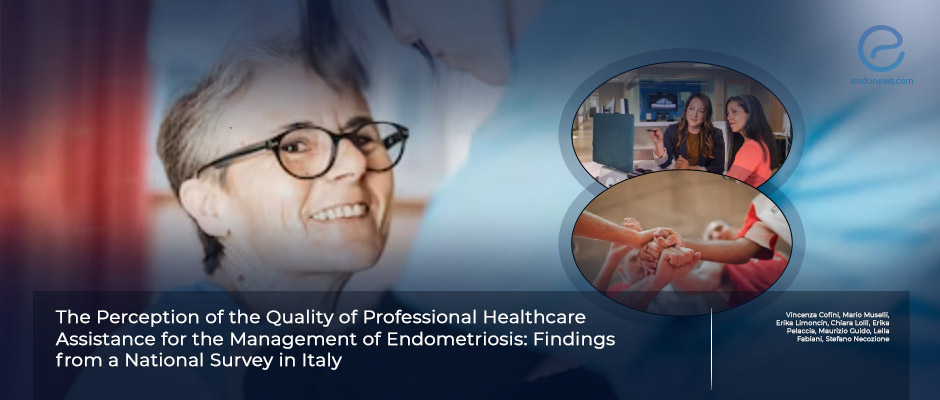Perception of quality of professional healthcare in Italian patients with endometriosis
Dec 21, 2023
An Italian survey on the awareness and professional health service in women with endometriosis during the pandemic.
Key Points
Highlights:
- Supporting the patient's well-being and creating the perception of their quality of life with professional healthcare is important for endometriosis.
Importance:
- To diagnose the presence of endometriosis as soon as possible and start the multidisciplinary treatment to improve the quality of life is crucial.
What's done here:
- To evaluate the patient view about the quality of care for endometriosis during the COVID-19 pandemic; an Italian team conducted a data analysis from a cross-sectional study.
- The authors focused on the women who had a medical visit during the last 12 months before the interview. The self-reported questionnaire forms were collected during the COVID-19 pandemic.
- Health Questionnaire (SF-36 V2) was used to assess physical and mental health expressed in 36 questions. Higher scores indicated a better quality of life.
Key Results:
- A total of 875 women participated in the survey. One-fifth of them took medicines if the specialist prescribed, while two-fifth used painkillers even without a specialist's recommendation.
- Complications related to endometriosis, especially dyspareunia and chronic pelvic pain, were the main complaint.
- Accompanying diseases (other endocrinologic disorders, autoimmune and rheumatologic pathologies, and chronic pelvic pain) were reported in more than half.
- For 35% of the patients, the diagnostic delay exceeded 9 years.
- Participants perceived their physical well-being to be better than their mental well-being.
- The multivariate analyses showed that satisfaction was correlated with hours of health service and the treating clinician. Women with complications were less satisfied.
Lay Summary
According to the Italian Ministry of Health, the prevalence rate of endometriosis among women in their reproductive age is 10-15%. Many of them suffer from intense pain and a poor quality of life due to diagnostic delay. The average delay was reported as seven years in 2021 and 10 years in 2022 annual statistics. Starting in 2017, "endometriosis" was accepted as an "Essential level of Assistance" in Italy. The disease's most advanced stages were included in the list of chronic and disability pathologies. The Italian Health Ministry decided to be exempt from check-ups by certain specialists for those 300.000 women with advanced endometriosis. The duty of healthcare providers should be to consider the outcomes regarding patients' healthcare and well-being and to improve quality of life. During the COVID-19 pandemic, the lack of managing the disease, clinical and surgical treatments, and follow-ups resulted in significant deterioration and a further decrease in quality of life.
Cofini et al. from the University of Aquila, Italy, aimed to analyze the patient's view of interest regarding the quality of care for endometriosis during the pandemic. Their results were published in November 2023 issue of International Journal of Environmental Research and Public Health.
While examining healthcare satisfaction, analyses were made through five topics that were i) perceived quality of life, ii) knowledge about endometriosis, iii) management of endometriosis, iv) perceived mental and health care, v) perceived changes in quality of life during the pandemic.
Perception of quality of Assistance was the most favorable among patients who filled out the health questionnaire forms. This study revealed that women treated by an endometriosis specialist were more satisfied with the clarity of information. Considering that less educated women were less happy with doctors' explanations, there was a need for a medical staff who could provide accessible communication and explain all diagnostic and treatment information easily. Over half of the women reported negative organizational, relationship, and environmental changes during the pandemic. Positive interactions and effective communication between patients and health providers can improve their quality of life.
Research Source: https://pubmed.ncbi.nlm.nih.gov/37947536/
quality of life quality of care patient satisfaction patient healthcare quality perception chronic disease care during pandemia endometriosis.

